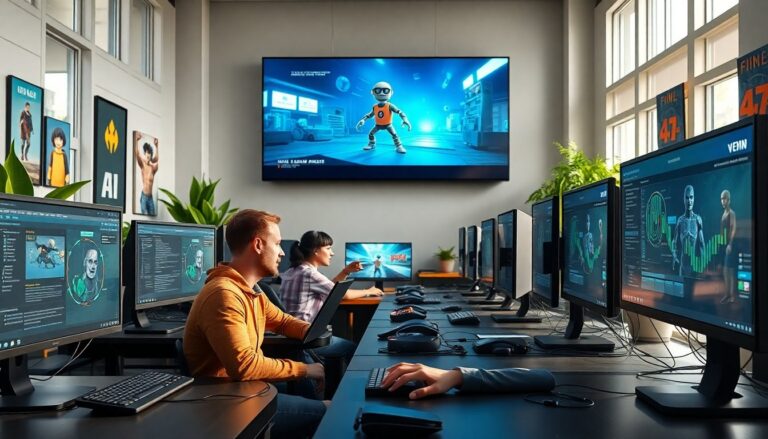Argomenti trattati
The gaming industry has consistently led the charge in adopting new technologies. Today, artificial intelligence (AI) is taking center stage. Its ability to enhance player experiences, create dynamic content, and streamline game development is reshaping how games are designed, played, and experienced. This article explores the various ways AI is transforming gaming, focusing on its applications, benefits, and future potential.
AI applications in gaming
One of the most significant applications of AI in gaming is in game design. Developers are increasingly leveraging AI algorithms to create more realistic and engaging game environments. For instance, procedural generation techniques powered by AI can automatically produce vast game worlds, offering players a unique experience each time they play. This not only saves time and resources for developers but also enhances replayability for players.
Dynamic NPC behavior
Another major advancement lies in the behavior of non-playable characters (NPCs). Traditional NPCs often follow scripted paths, leading to predictable interactions. However, with AI, NPCs can learn from player behavior and adapt accordingly, resulting in a more immersive experience. This adaptive behavior enables NPCs to react in real-time to player actions, creating a more lifelike and engaging world.
The benefits of AI in gaming
Integrating AI not only enhances gameplay but also offers several advantages for developers. A significant benefit is the efficiency gained in the development process. AI tools can analyze player data and provide insights that help developers understand what works and what doesn’t, allowing them to make informed decisions during the design phase. This data-driven approach leads to improved game quality and player satisfaction.
Enhanced player engagement
AI also plays a crucial role in improving player engagement. By analyzing player preferences and play styles, AI can tailor experiences to individual users. For example, AI-driven recommendation systems can suggest games or in-game purchases based on a player’s history and preferences. This level of personalization not only makes players feel valued but also increases their likelihood of returning to the game.
Challenges and future potential
Despite the numerous advantages, implementing AI in gaming comes with challenges. Concerns regarding data privacy and ethical considerations are paramount, especially when it comes to collecting and analyzing player data. Developers must ensure they respect user privacy while still harnessing AI’s capabilities.
Looking ahead, the future of AI in gaming appears promising. As technology continues to evolve, we can expect even more sophisticated AI applications, including virtual reality (VR) and augmented reality (AR) experiences tailored to individual players. The potential for AI to create truly immersive environments is vast, limited only by the imagination of developers.
The integration of artificial intelligence in gaming is revolutionizing the industry, creating more engaging and personalized experiences for players. As developers explore the potential of AI, we can anticipate a future where games become increasingly dynamic, responsive, and immersive.

